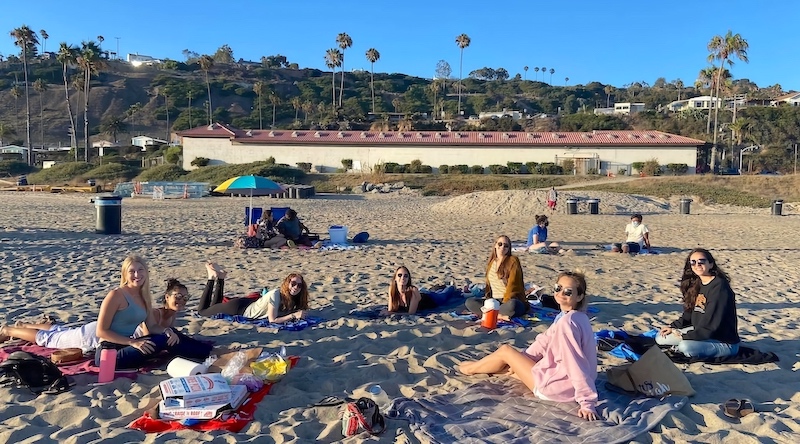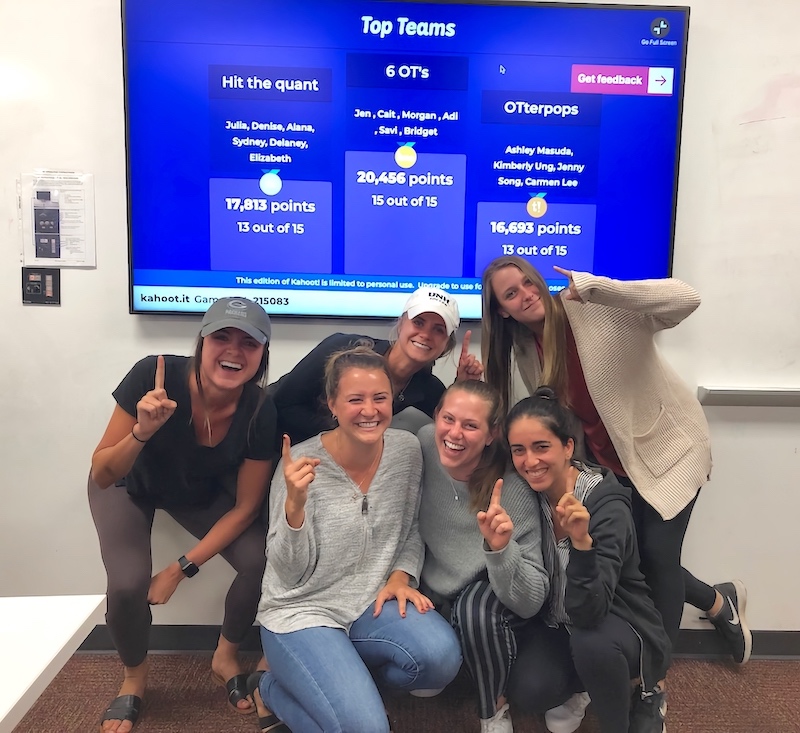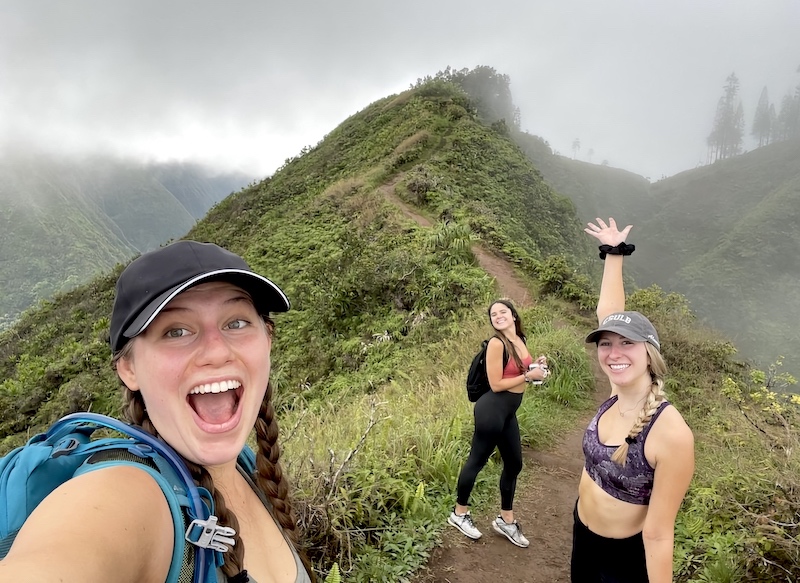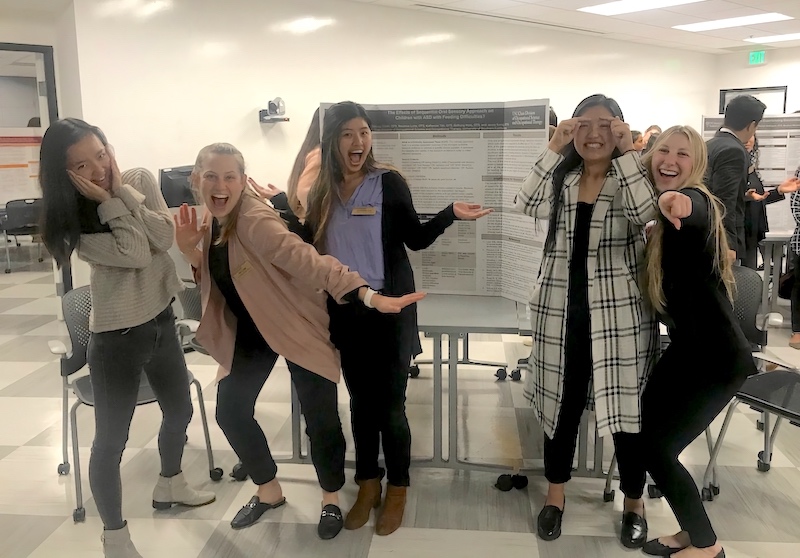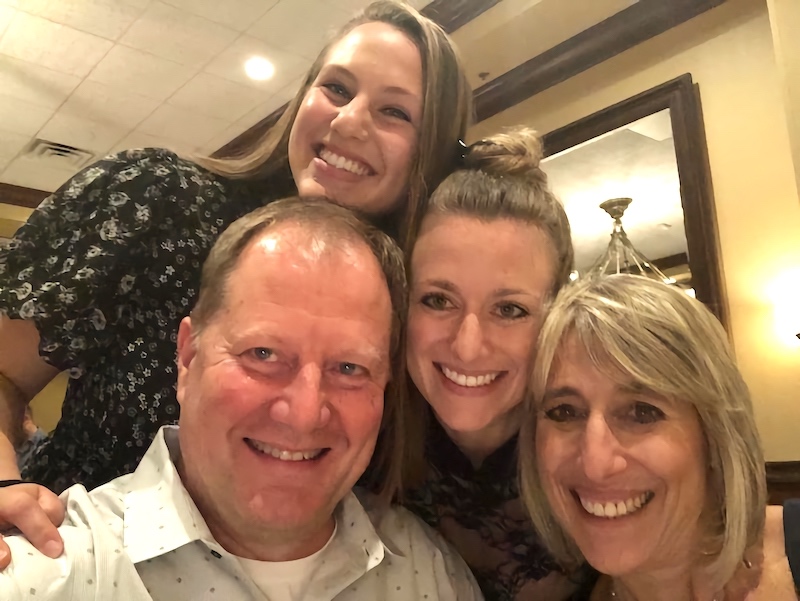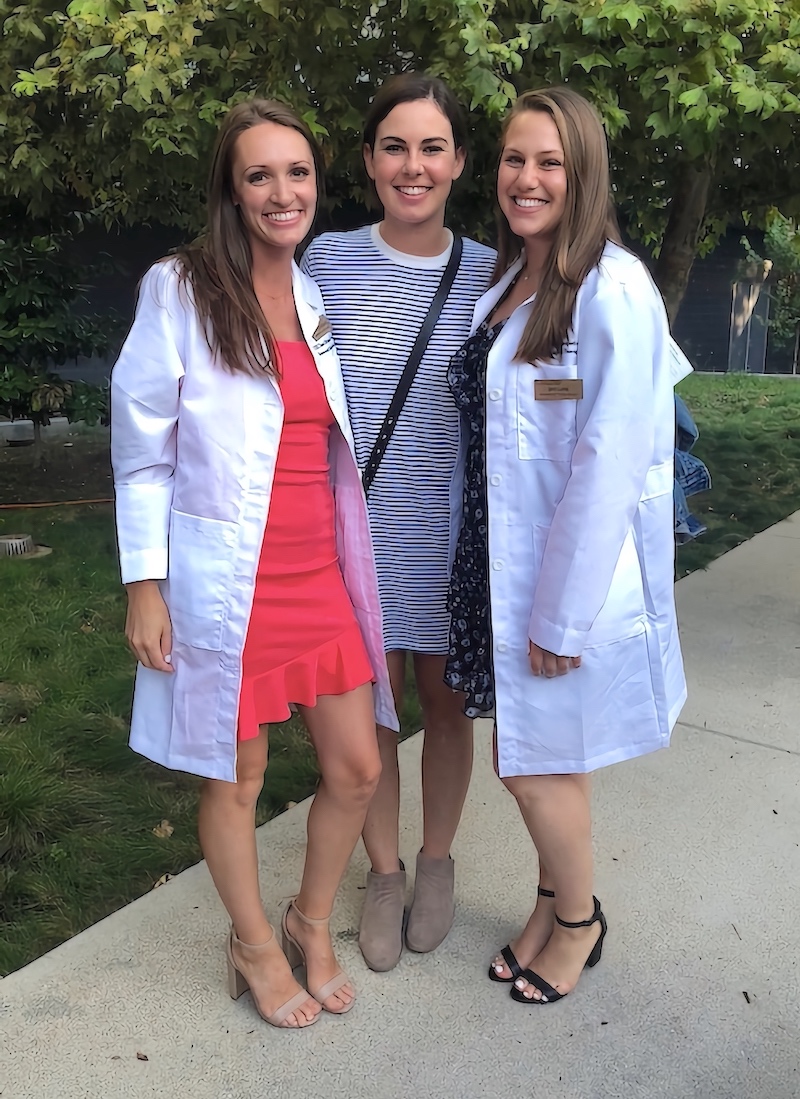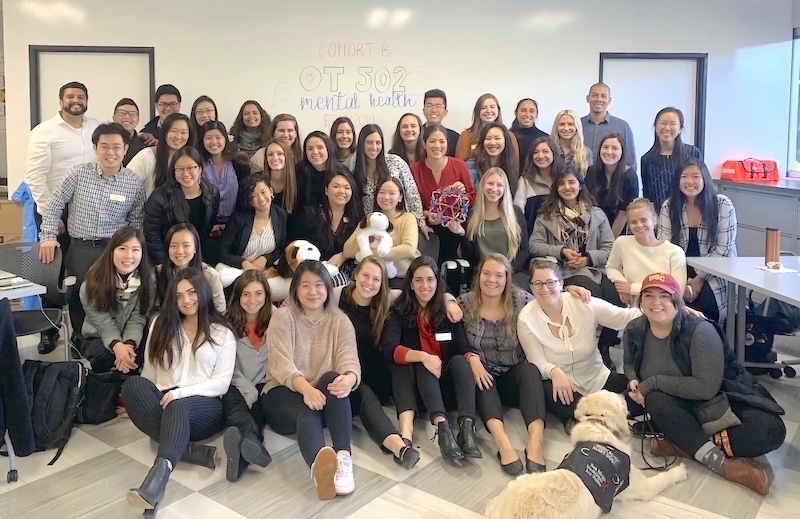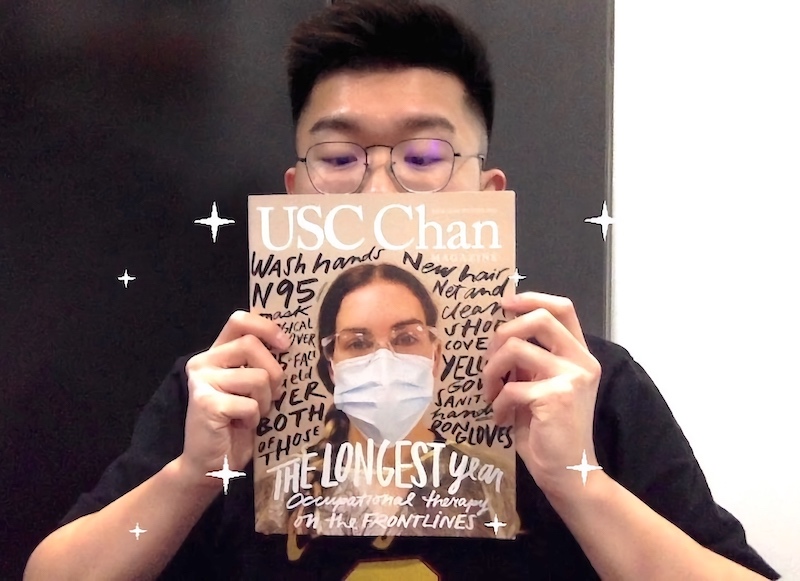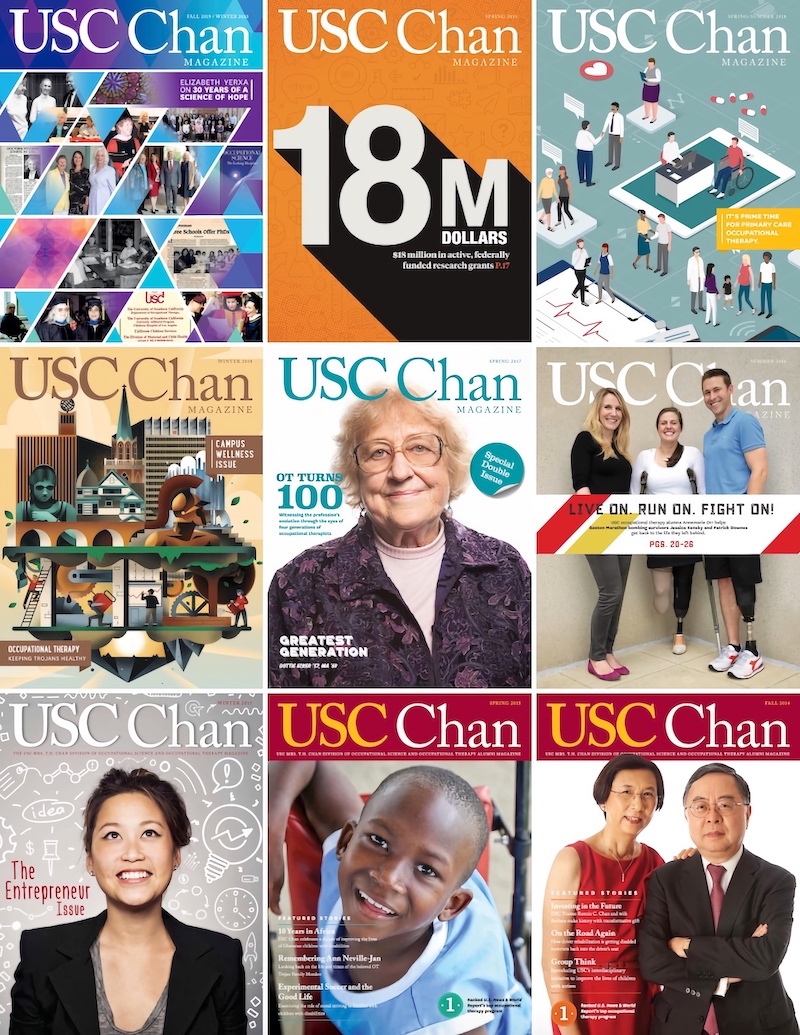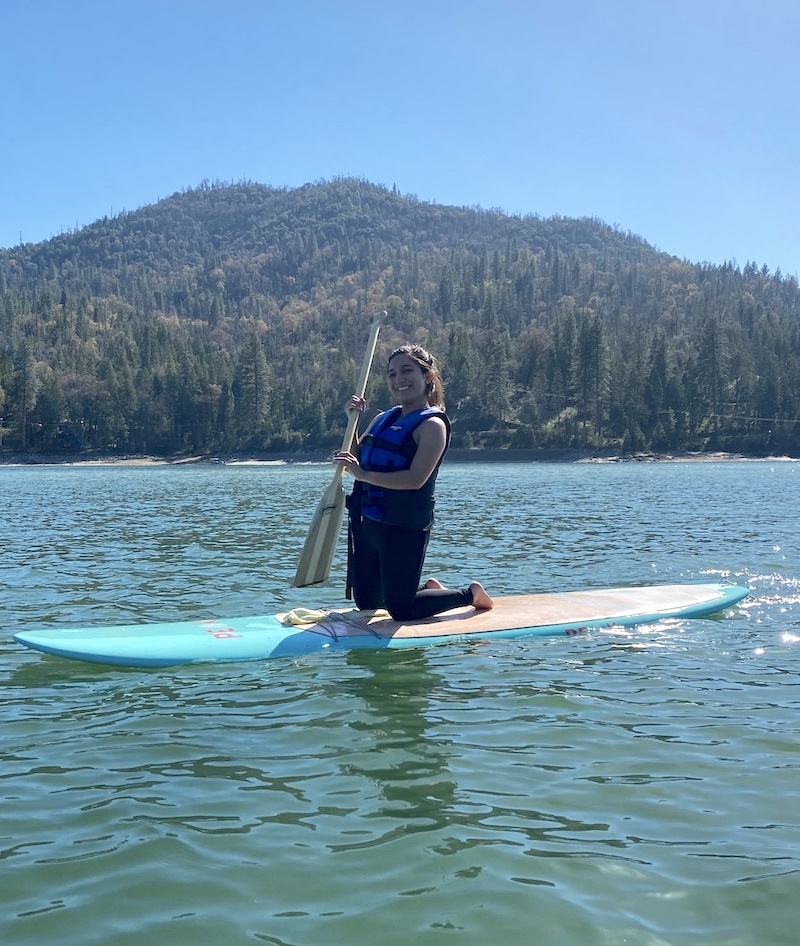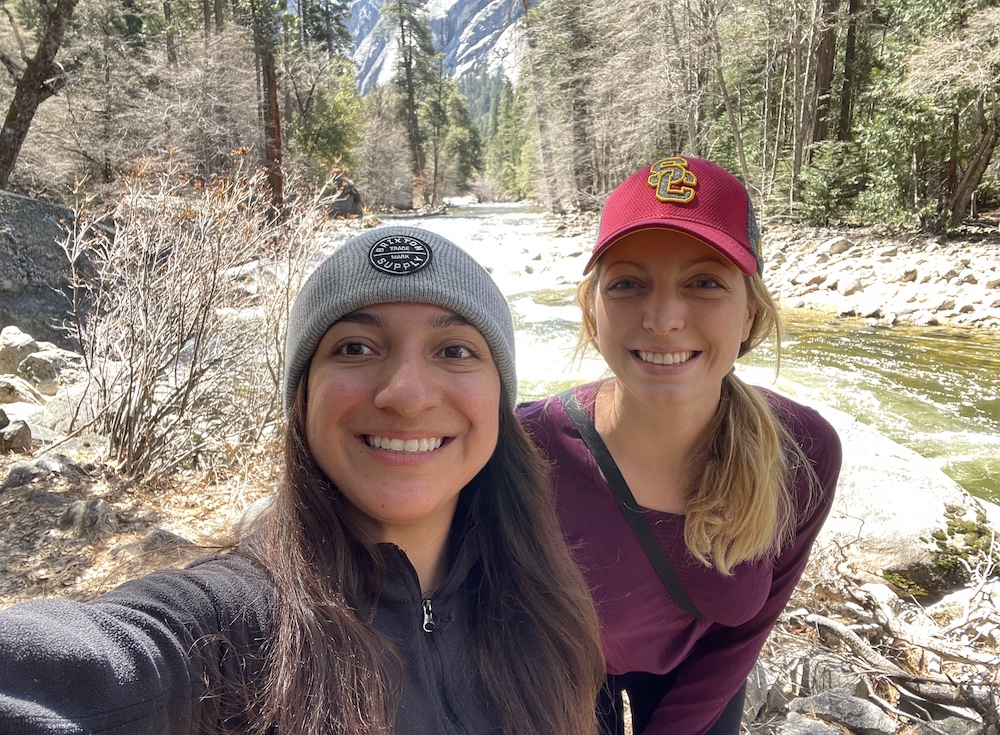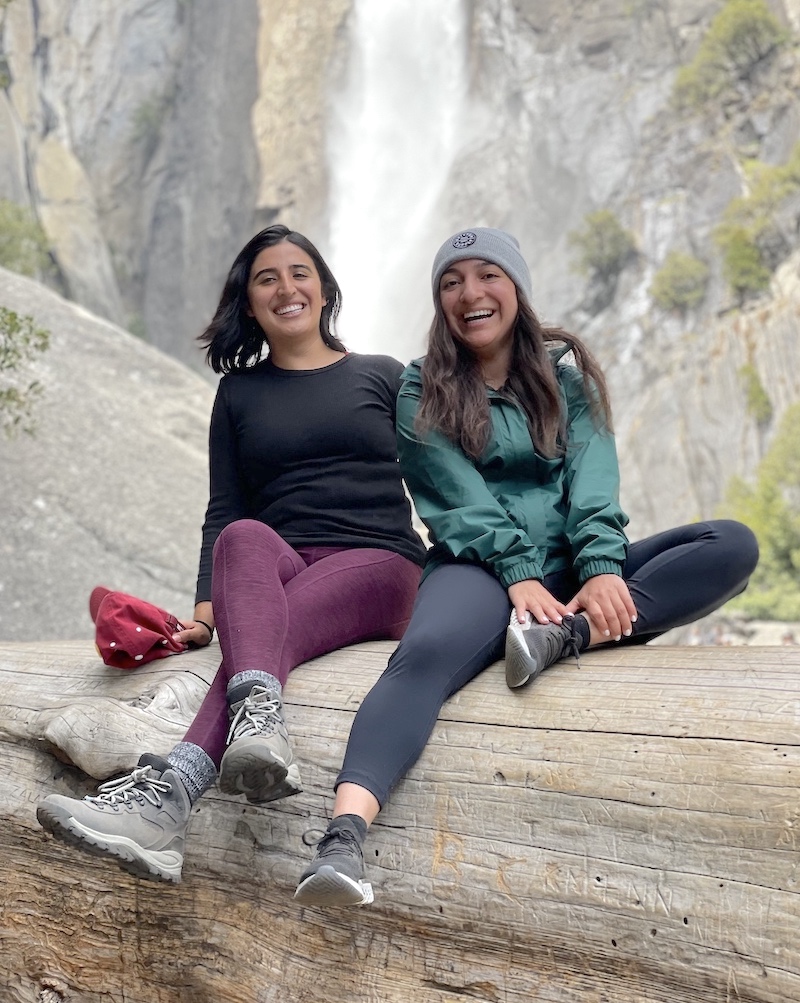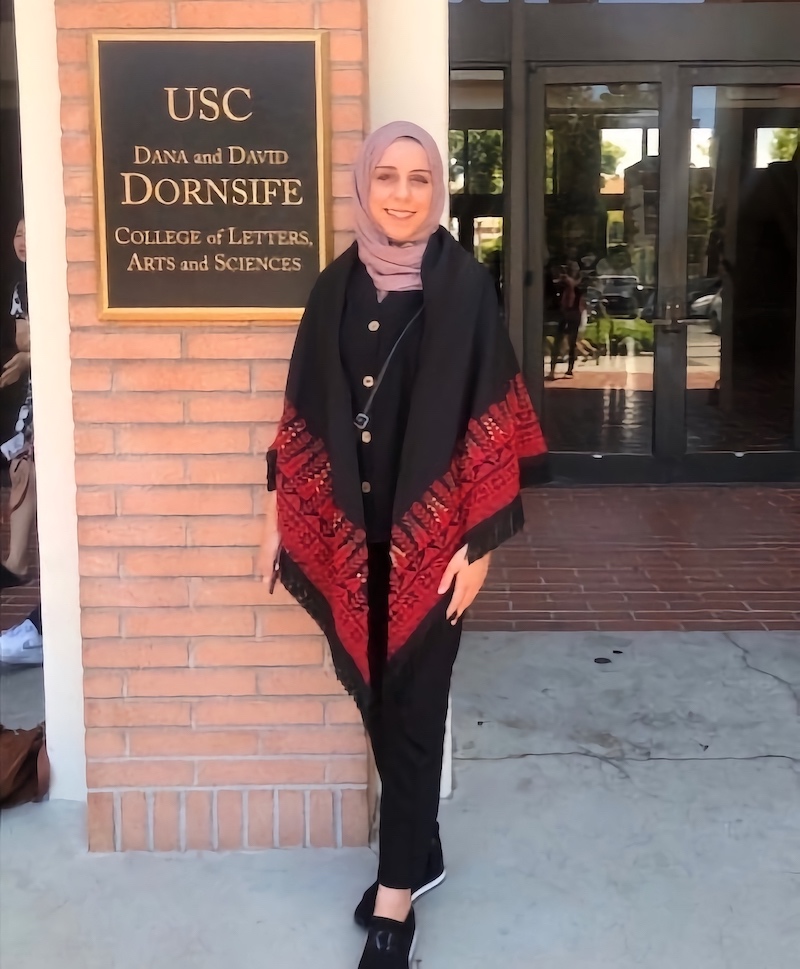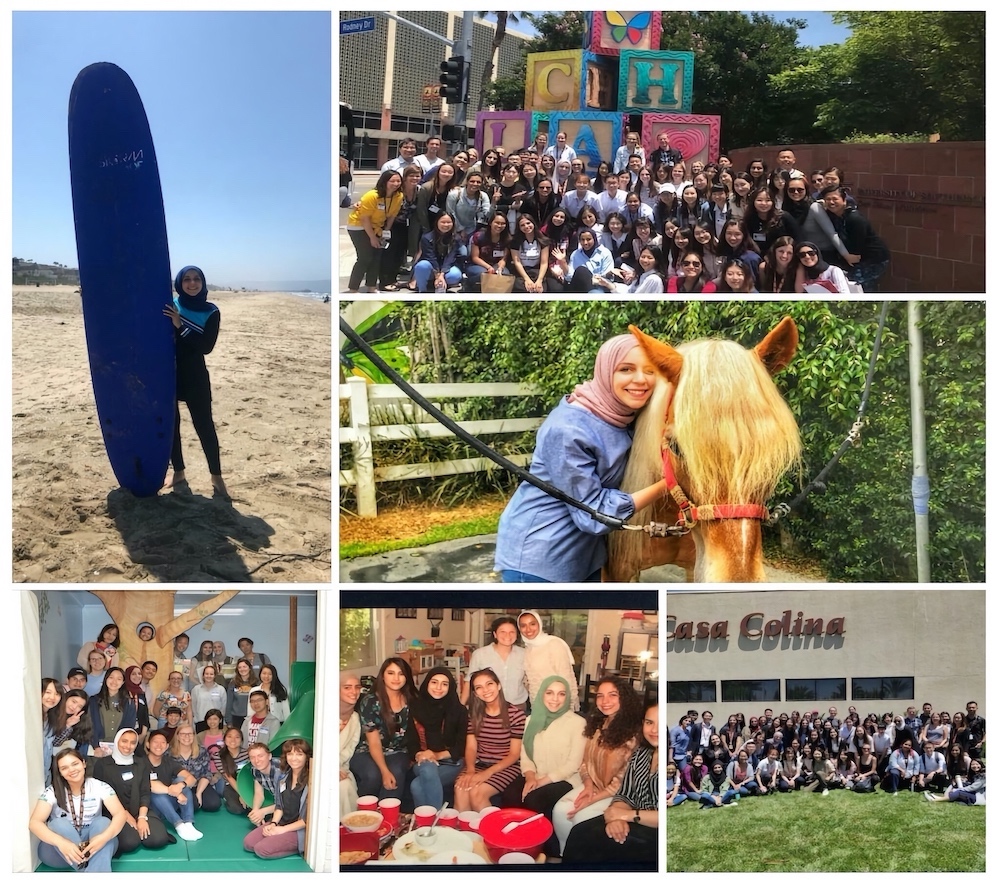Student Blog

Finding your A-teams ⟩
April 23, 2021, by Savi
Classes Getting Involved Life Hacks
When you get to graduate school, you will quickly realize that you cannot succeed alone. You will gravitate towards and lean on all types of people throughout your two years and you will form long-lasting friendships. As graduation soon approaches, I have had to face the fact that I will no longer be blessed with the opportunity to work with all these wonderful people on a daily basis. I have formed a variety of different teams depending on the class, club, job, or activity I’m in and I wanted to thank all the people who have helped me succeed as a student, friend, classmate, and practitioner. Below I have included some pictures of my various teams. This is most definitely NOT a comprehensive list, because there are so many more wonderful people who have helped me along the way that are not pictured below. To those who are not pictured . . . you know who you are . . . I appreciate you all!
- To those who got me through my first summer semester: I truly do not know how I would have made it through without ya’ll. Whether you were a friendly face to me on the first day (shout out to Lamoni for being the kindest to me when we were seated next to each other on the first day of class), a late-night study partner in Currie Hall, or a lab partner who tolerated me asking too many questions and talking everything out loud, you made the transition into graduate school a little less stressful.
- To the MANY group project teams: Thank you for helping me expand my creativity. Time and time again I found myself researching topics I would have never come up with on my own. Whether that was focusing on the effectiveness of the sequential oral sensory approach with children who are diagnosed with Autism Spectrum Disorder in OT 518 Quantitative Reasoning, or developing a wellness program for undergraduate college students in OT 537 Occupation for Community, I got the opportunity to surround myself by people with varying interests and skillsets which allowed me to grow as a practitioner.
- My cohort: Shoutout to cohort B for being the best cohort I could EVER ask for. Your knowledge about and passion for OT inspired me daily and I couldn’t have asked for a better group of people to hang out with all day every day.
- My roommates: These people have seen it all! Shoutout to these gals for dealing with me at my best and my worst, for always being a shoulder to lean on, and for listening to all my crazy rants. I appreciate you both for making the little parts of life fun, for being my “OT practice patients” during this pandemic, and for supporting me always. I couldn’t have done these two years without you!
- To my ambassador team: You all are my rocks. Thank you for having faith in my capabilities, for always stepping up to the plate, and for helping me out when you can see that I am stressed. You all always know the right thing to do and say, and it has been an honor working with and learning from all of you.
- To the adventure buddies: Thank you for taking my mind off the craziness that is graduate school and helping me re-focus on my energy on meaningful occupations. You are the silent heroes in my life. Thank you for supporting me both inside and outside of the classroom. You are able to read me like a book by this point and understand when I need to take a break and just enjoy the outdoors. You are the ones to text me a funny joke when you know I am having a hard workday or to organize an event when it is time to celebrate even the smallest success. Thank you for pushing me outside of my comfort zone, surrounding me with love and celebration, and for being there through the tough times.
- To my family . . . my lifelong team: There are not enough thank you’s to show how grateful I am for you three. To my sister, life mentor, and OT guide, I do not know where I would be without your wisdom and guidance. You always know the right thing to say and do and I will forever be thankful for you. Mom and Dad – you are my biggest support system. Without out you none of this success would have been possible. You are my biggest cheerleaders and I know that you two are what motivate me to push harder every day.
My friends and I winning a fun and friendly competition in preparation for a quantitative reasoning exam.
My quantitative reasoning team posing in front of our poster on the effectiveness of the sequential oral sensory approach.
⋯
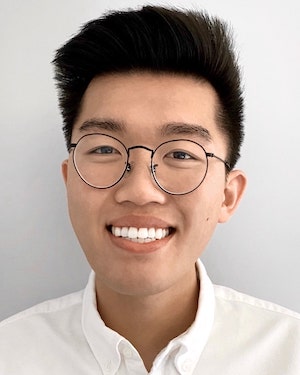
Hot Off The Press!!! ⟩
April 19, 2021, by Calvin
Classes Externships Getting Involved What are OS/OT?
Extra! Extra! Read all about it! Here at USC Chan, we actually have our very own magazine! The USC Chan Magazine is the division’s premier publication and releases twice yearly. The Fall 2020/Winter 2021 issue was recently published, and I had the pleasure of contributing to it as a writer and interviewer. Major thank you to the man behind the magazine, Dr. Mike McNulty, for his guidance, support, creativity and flexibility throughout the entire process, as well as for being such a driving force in making these magazines come to life! So much work gets put into crafting each issue and his collaborative efforts to piece everything together with all contributors is 👏!
Check out the most recent USC Chan Magazine: Fall 2020/Winter 2021 issue!
Here are links to some articles included in the latest issue:
- The Longest Year, by Dr. Carnie Lewis
Reflections on the frontline pandemic experience from a hospital-based occupational therapist. - Lessons Learned, by Calvin Lee (me!)
A new course helps make sense of the pandemic by studying it. - Pain and Pleasure, by Jamie Wetherbe
Face to face and through the screen, a USC occupational therapist helps a client better manage her everyday pain to improve quality of life. - To Do Unto Others, by Dominique Como
Narrowing oral health disparities gaps of Black/African American children with and without disabilities.
I’m also very grateful to have been able to tailor this experience towards my OT 540: Leadership Capstone Externship Project. The externship is an experience where students are provided with the opportunity to build leadership skills and explore an area that is of interest to them. I’ve always been fascinated with the USC Chan Magazine and I was very interested in learning about how an OT lens can contribute to the realm of copywriting and advertisement. I highly recommend giving the magazines a read 😊! Reflecting back, it’s amazing to see how much we’ve accomplished and overcome together as a USC Chan community.
Explore previous issues of the USC Chan Magazine!
⋯
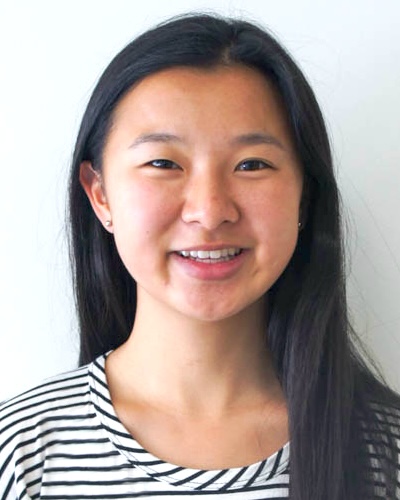
The Choice is Yours ⟩
April 16, 2021, by Bethany
Congrats! To all of our undergraduate admitted students, you’ve made it! It’s been a long season of submitting applications and putting yourself out there, and now the power is in your hands. You get to choose where you want to go to school next fall.
Pursue your passions — With whatever choices you have available to you, remember that this is a time to learn. Part of why I chose USC as an undergrad school is because I was able to pursue OT, and at the same time, I didn’t have to give up my passion for music. I could be a part of the Trojan Marching Band and pursue a minor in Musical Studies. Since my faith is also important to me, I found Christian community at my school to support me. I looked for a school where I could continue to do what I loved. Consider what other classes you might want to take for fun, what clubs are available, and what life on and off campus might look like. You can even take a tour if you want to hear a student perspective!
Give yourself space to grow — I was nervous to choose such a large school. I came from a small city where the people I knew senior year, I had known since at least sixth grade, if not elementary school. But in the end, I decided that I wanted to get out of my comfort zone, to be okay with knowing when to advocate for myself and ask for help and to meet new people. Think about ways that you would like to grow. Even if a school doesn’t seem like a perfect fit for who you are now, would it push you to become someone you want to be?
Money, money, money — Finances are always a factor when considering schools. That’s why you should also consider that there are resources like scholarships, financial aid, and work study to support whatever decision you make. Personally, I found different scholarships and student jobs throughout undergrad and even now. The Chan Division provides some scholarships specific to the division. You can also find other scholarships associated with USC, and even more outside of the university!
It’s not the end — It may seem like you have to make a decision for the next four years of your life, so maybe it will surprise you to hear that whatever you choose, you’re not stuck in your decision. Many schools have transfer processes for both simple changes like switching majors to deciding to go to another university. Even beyond undergrad, you may have even more opportunities in your future choices (like which grad school you want to attend to pursue OT)!
Prioritize — There are many factors playing into your decision, and the ones listed above are only some of them. Maybe you want to stay in-state, or maybe you want to get as far away from home as possible for the next four years. Maybe you’ve had a dream school since you were little, but you’re not sure if it’s the right fit now. Take a deep breath. Figure out which of these factors is the most important for you to prioritize.
There’s a lot to think about, and it is a big decision. Be sure to get input from people you trust. But remember that in the end, this is your choice! And from here, there’s going to be so much to look forward to!
⋯
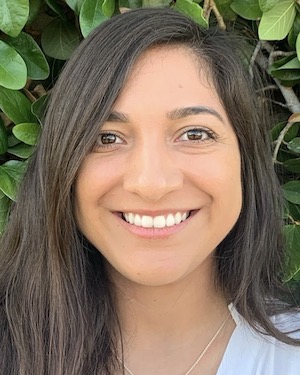
CA Fun — Yosemite Edition ⟩
April 14, 2021, by Liz
Restorative occupations week was exactly one month ago. At the time fieldwork kept my roommates and me super busy. Yes, we did do things that were restorative — however, this weekend we decided to take part in a belated restorative occupations weekend! As you all know USC is located in the best state in the world, California. We are lucky enough to have amazing weather nearly all year round!
For our restorative occupations weekend we decided to take a day trip to Yosemite National Park. California is full of beautiful national parks. So, if you decide USC is the right fit for you — definitely take time to enjoy nature’s beauty!
The drive to Yosemite from LA took us around 5 hours. Of course this included making a pit stop for food and several bathroom breaks. Our first stop was paddle boarding at Bass Lake. This was close to the city of Oakhurst, which is where we were staying for the night. After a fun afternoon in the water, we checked into our Airbnb and went stargazing later that night.
The following day we were back on the road at 7 AM to head to the national park. There was barely any snow left, but the views were breathtaking! We hiked to Mirror Lake and Lower Yosemite falls. By 3 PM we were listening to our girls trip playlist as we drove back to LA.
As the school year comes to an end and everyone in my friend group is worried about the OTD/getting started with work, it was nice to take a break from the stress and enjoy ourselves. Here are some pictures from the trip!
⋯
My Summer Occupational Therapy Immersion (SOTI) Program Experience ⟩
April 14, 2021, by Global Initiatives Team
By Samar Lahham, Occupational Therapist in Palestine
SOTI Alumni (2019)
My experience in USC’s Summer Occupational Therapy Immersion (SOTI) program for one month was indescribable and memorable, both personally and professionally. Participating in this program gave me the opportunity to learn from new experiences by attending lectures and site visits that are related to various areas of occupational therapy. In addition to the common occupational therapy intervention areas in Palestine, I have also experienced new interventions for wider population categories. For example, the role of occupational therapy working with people who have been through homelessness, human trafficking, and perinatal loss. These are new and important interventions I would take back to my country as a qualitative addition for the occupational therapy profession. For me, the most interesting experiences were learning about animal-assisted therapy through The Children’s Ranch Foundation, Ocean Therapy, and innovative practices that help children living with autism, cerebral palsy, visual impairments, and adults living with mental health conditions. This experience opened my eyes to new and interesting aspects within the field which I would complete my Master’s in.
The SOTI program also created opportunities for effective interactions between participants from all over the world, which enhanced sharing knowledge about occupational therapy theoretically and practically in other cultures.
Personally, the SOTI program provided me the chance to face new challenges and experiences for the first time in my life that made me more confident and stronger. It’s the first time I’ve traveled alone for 22 hours, my first experience in surfing and closely interacting with animals as I hugged a horse and carried a chicken or rabbit, and it was also interesting to try new foods from different cultures and visit amazing places in LA. This experience made me more responsible and independent in managing my daily affairs and needs, taking care of myself, enhancing my financial and time management skills, and also improving my leadership and communication skills by being a group facilitator for many presentations. Moreover, my English skills have improved significantly through the program, making new friends and interacting effectively with the American society.
I really would like to recommend SOTI to other occupational therapy students as it is a great chance to improve their skills professionally and personally.
Samar at SOTI. [top left: Ocean Therapy (Redondo Beach), top right: Children’s Hospital Los Angeles, Center right: The Children’s Ranch Foundation, bottom left: Pediatric Therapy Network, bottom center: Visiting with Dr. Samia Rafeedie, bottom right: Casa Colina Centers Hospital and Centers for Healthcare]
⋯






